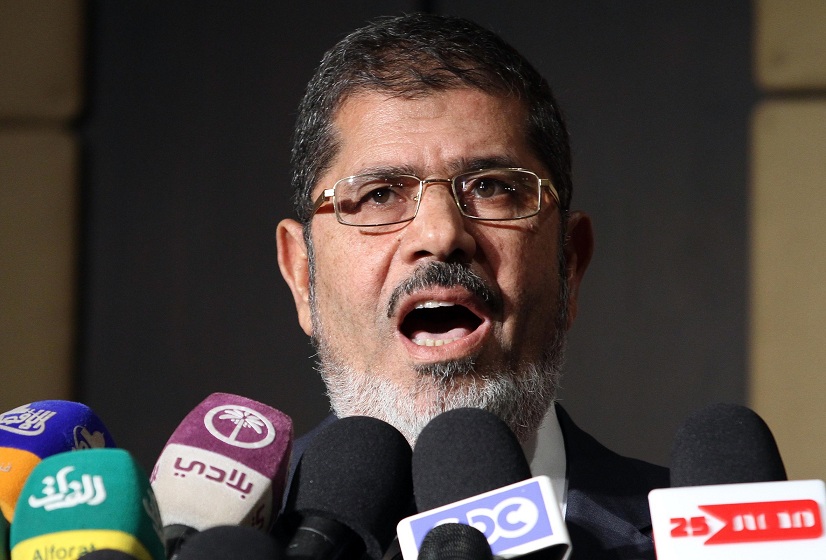
Laurence Underhill / DNE
Egyptian Vice President Mahmoud Mekki has confirmed that the Justice Department is currently working on a framework for the establishment of an independent body to oversee media practices.
The newly-appointed Vice President told independent newspaper Al-Tahrir, “the trend is to remove these types of cases from prosecution or the courts, meaning that there will not be court summonses for journalists or an owner of opinion ever again, and journalists will not stand trial, and the preventive detention of journalists for crimes relating to publishing will be cancelled.”
He also noted that numerous measures “scattered in legislation” impair the freedom of expression for journalists and private citizens.
Mekki’s announcement came on the heels of a decree issued by President Mohamed Morsy on Thursday cancelling preventive detention for journalists for offences related to publishing. The measures were taken after editor-in-chief of independent newspaper Al-Dostour, Islam Afifi, who is standing trial for insulting the President, was to be remanded in custody pending charges. His trial will resume 16 September.
Morsy’s decree was met with relief among those shocked at the initial ruling to keep Afifi in custody. However the journalist will continue to stand trial for “insulting the President,” which falls under Law 96/96.
Law 96 was passed following outrage from Egypt’s journalists in response to Law 93/95, which had been passed the previous year. Law 93/95, passed at a time when the media was focused on government corruption, assigned harsher penalties for vaguely defined libel, and allowed for journalists to be tried in military courts. The controversial law also enabled the Government to shut down publications without due process of the law.
After pressure by journalists and the Press Syndicate, Parliament passed Law 96/96, which was a major victory for those who protested. The new law revoked many of the harsh measures passed in 93/95, but still prohibited insulting the President, other public officials, and even foreign heads of state. Law 96/96 also stipulated that journalists violating it could be preventively detained pending trial, although this was not commonly used before the Afifi case.
During Egypt’s transitional phase, the Press Syndicate has worked with a number of domestic and international organisations to pave the way for improvements in freedom of speech. “We don’t want to copy and paste,” said Vice-Chairperson of the syndicate Abeer Saady, “but we’re not looking to reinvent the wheel.”
The independent body proposed by Mekki would empower Egyptian journalists with a higher level of independence, and has been a direction in which the Press Syndicate has worked towards. Saady, fellow syndicate board members, and other Egyptian journalists launched an initiative with UNESCO in April for media self-regulation. They discussed strengthening professional ethics and spoke with representatives from Germany, Indonesia, Pakistan, Sweden, and the United Kingdom.
“We’re looking east to India,” noted Saady. Similar to Egypt, the Indian Government for decades following the country’s independence strictly controlled Indian media. However the 1990s brought sweeping liberalisation and independence to media there.
The Press Synicate has requested a meeting with Vice President Mekki, President Morsy, and Justice Minister Ahmed Mekki in mid-September to convey its vision for the future of the freedom and independence of the press in Egypt.
The syndicate has also lobbied for laws that provide guidelines for the availability of information, as no current laws address the issue. “Part of transparency involves allowing any citizen to obtain information,” said Saady, who also emphasised that laws entitling citizens to specific information upon request would provide less space for government corruption.
“Before we fought against Mubarak,” asserted Saady, “and now we are fighting for principles and appealing to society.”




